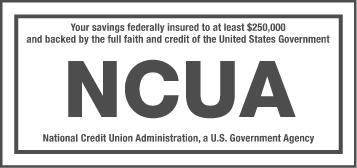When Is Debt Consolidation Helpful?
posted on
July 15, 2024
If you’re struggling to pay off multiple debts every month, you may have considered a debt consolidation loan. But how do you know if a consolidation loan would be helpful for your situation?
What is debt consolidation?
Debt consolidation is a form of debt refinancing that allows you to combine multiple debts into one single loan, with one single monthly payment. You can use a debt consolidation loan to pay off unsecured debts such as credit cards, medical expenses, back taxes, legal and gambling debts, and even secured loans such as vehicle loans. While this may sound like a perfect solution to your financial situation, there are a few things to consider before going down the debt consolidation route. The results of a debt consolidation loan should be to decrease your total monthly payments, lower your interest rate, and/or reduce total time to pay off your debts.
Will your total monthly payment decrease?
One way to determine if debt consolidation will be helpful for you is to determine if the total monthly payment will increase or decrease. To do this, add up all the monthly payments you make to your credit cards and other debts you’d like to consolidate. Then use an online debt consolidation calculator to help you determine how much your consolidation loan payment would be. Compare the two payment amounts and see if the consolidation loan payment is less. Make sure the reduced payment amount is now affordable for you. If it’s not, talk to your credit union about other possible solutions.
Will your interest rate decrease?
Pay very close attention to the interest rate you are offered on your debt consolidation loan. It should never be higher than the average interest rate you’re currently paying on your outstanding debts. If you’re offered a higher interest rate on a debt consolidation loan, then you will end up paying more money over the course of the loan than if you had just continued paying down your debts individually. There are companies that will charge up to 35%, but you can easily find a lower interest rate at a credit union.
Will your time to pay off your debts decrease?
Compare the length of time it would take to pay off your debt consolidation loan to the time it would take you to pay off your debts individually. The length of your loan can affect your monthly payment and interest rate, so it’s important to pay attention to this. Typically, a short-term loan will have a lower interest rate but could have a higher monthly payment due to the short time frame. A longer-term loan may come with a higher interest rate but can often result in a lower monthly payment due to the extended time you have to pay it down. However, if you are struggling to pay down revolving debts like credit card balances, a longer, fixed term may be exactly what you need to finally pay off your debt.
Are you still uncertain what is best for you?
SRP Federal Credit Union offers our member-owners financial counseling from certified financial counselors. Call or you can meet in person and discuss your best options. Click here to learn more and schedule an appointment.
SRP also offers free financial guidance and services online through BALANCE. The site offers webinars, articles, and you can speak to a certified financial counselor on the phone. Learn more at srpfcu.org/balance.
This article is for informational purposes only. All loans subject to approval and rate may vary depending on individual's credit history and other factors. Refinancing restrictions apply. All Credit Union loan programs, rates, terms, and conditions are subject to change at any time without notice. Membership required. SRP is federally insured by NCUA.
Article Credits: CUNA




